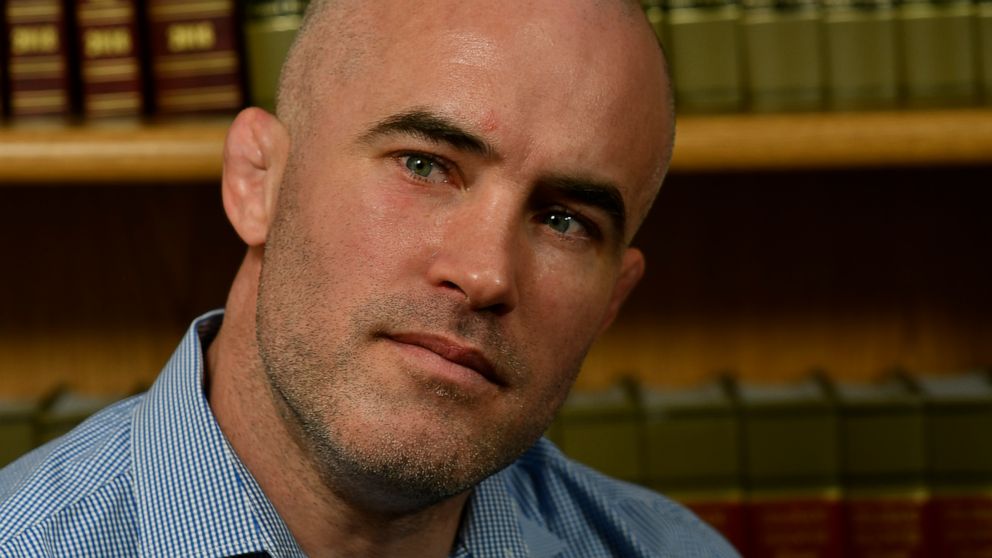[ad_1]
ANN ARBOR, Mich. —
Several men alleging sexual abuse by a deceased University of Michigan doctor have retained a California law firm that is representing dozens of accusers who sued Ohio State University in a similar case, a lawyer said Monday.
Stephen Estey said the parallels between the allegations about Dr. Richard Anderson at Michigan, which became public last week, and the late Dr. Richard Strauss at Ohio State “are frightening because everyone knew the doctors were doing bad things.”
Multiple lawyers for victims of imprisoned former Michigan State University sports doctor Larry Nassar also said they have heard from people who are considering their legal options after they were allegedly assaulted by Anderson during medical exams.
It is unclear if the University of Michigan will see the magnitude of lawsuits facing Ohio State, which are pending, and Michigan State, which settled with hundreds of victims for $500 million.
Attorney Michael Nimmo, part of a Denver-based firm representing Andy Hrovat, the first former Wolverine athlete to publicly accuse Anderson of wrongdoing, said it is clear his client has a claim. Nimmo said there are federal and state laws that protect Hrovat and all student-athletes who were abused by Anderson.
“We’re going to be investigating that to the fullest extent,” Nimmo said.
University of Michigan officials were warned more than four decades ago that Anderson was fondling patients during exams, but he continued working there despite a demotion and went on to allegedly abuse again as a physician with the school’s athletic department, according to documents from a police investigation The Associated Press obtained through a public-records request.
The probe began in October 2018 based on a letter from a former wrestler to athletic director Warde Manual in mid-July. It was not made public until last week, drawing criticism from lawyers and the first woman to publicly accuse Nassar of sexual abuse.
The school has attributed the silence to an ongoing review by local prosecutors and said its first public statement released Wednesday came a day after prosecutors decided no charges were possible. But prosecutors insisted their decision was communicated to campus police investigators last fall.
The confusion was made possible because the case was not submitted as a formal request for prosecution. That step triggers a well-documented process used for most reviews by prosecutors, an official with the Washtenaw County Prosecuting Attorney’s Office told the AP.
In that formal process, a written “denial memo” is sent to the law enforcement agency and automatically stored in the prosecutor’s office.
The reviewing prosecutor suggested to police that a formal request wasn’t needed because Anderson died in 2008, said chief assistant prosecutor Steven Hiller.
“I agree that the decision should have been memorialized, as happens with the over 6,000 requests for prosecution our office reviews each year,” Hiller said. “Doing so would have eliminated the possibility for miscommunication. However, that was not done in this highly unusual case. This office has already taken steps to ensure that a written memorialization is created for each decision made following a review, even when the decision does not pertain to a formal request for prosecution.”
Documents released to the AP on Friday include emails between Konrad Siller, the first assistant prosecutor in the office, and University of Michigan Police Detective Mark West and Lt. Paul DeRidder.
Siller told the investigators on April 25 not to submit the investigation through “ONBASE,” an electronic document management system. West emailed his report to Siller four days later.
In June, West emailed Siller asking for an update.
“I have risk management contacting me wanting to know what the status is on it for their insurance purposes,” he wrote.
Siller replied that he had not yet reviewed the whole report, kept busy by ongoing murder cases.
In September, West sent another email to Siller with an attachment he said contained “further information” on the case.
The only other email released to the AP was from West to Siller on Jan. 21, indicating West believed the prosecutor’s office was still reviewing his work.
“I have been getting more requests from the survivors of this, as well as the University general Counsel’s office about this Dr. Anderson report,” West wrote. “Have you reviewed it yet?”
No reply from Siller was included in the documents released to the AP.
Hiller said the prosecutor who reviewed the case remembers calling the investigator by phone in the fall to share his decision that no charges would be authorized.
“As we move forward, and in consultation with the Prosecutor’s Office, we all agree there is value in adopting a more formal process for notification when formal criminal charges are not filed,” university spokesman Rick Fitzgerald said.
———
Eggert reported from Lansing and Foody from Chicago.
———
Associated Press writers Kantele Franko in Columbus, Ohio, and Larry Lage in Ann Arbor contributed to this report.
[ad_2]
Source link

